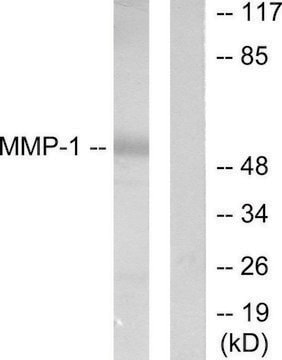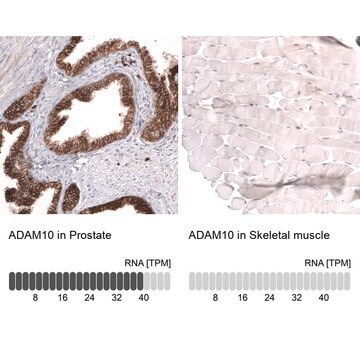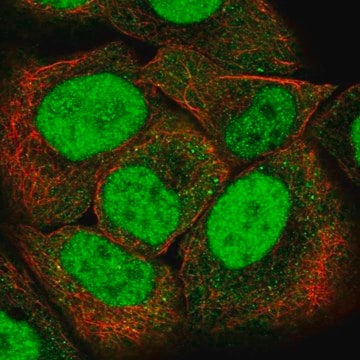MABT171
Anti-MMP-9 (Active) Antibody, clone 4A3
clone 4A3, from mouse
Synonym(s):
Matrix metalloproteinase-9, MMP-9, 92 kDa gelatinase, 92 kDa type IV collagenase, Gelatinase B, GELB
About This Item
Recommended Products
biological source
mouse
Quality Level
antibody form
purified immunoglobulin
antibody product type
primary antibodies
clone
4A3, monoclonal
species reactivity
human
technique(s)
immunohistochemistry: suitable
western blot: suitable
isotype
IgG1κ
NCBI accession no.
UniProt accession no.
shipped in
wet ice
target post-translational modification
unmodified
Gene Information
human ... MMP9(4318)
General description
Specificity
Immunogen
Application
Cell Structure
MMPs & TIMPs
Immunohistochemistry Analysis: A representative lot from an independent laboratory detected the active form of MMP-9 in oesophageal cancer tissues (Duncan, M. E., et al. 1998. Eur J Biochem. 258(1):37-43).
Quality
Western Blot Analysis: A 1:250 dilution from a reprsentative lot detected the active form of MMP-9 in WB.
Target description
Physical form
Storage and Stability
Analysis Note
Active form of MMP-9
Disclaimer
Not finding the right product?
Try our Product Selector Tool.
Storage Class Code
12 - Non Combustible Liquids
WGK
WGK 1
Flash Point(F)
Not applicable
Flash Point(C)
Not applicable
Certificates of Analysis (COA)
Search for Certificates of Analysis (COA) by entering the products Lot/Batch Number. Lot and Batch Numbers can be found on a product’s label following the words ‘Lot’ or ‘Batch’.
Already Own This Product?
Find documentation for the products that you have recently purchased in the Document Library.
Our team of scientists has experience in all areas of research including Life Science, Material Science, Chemical Synthesis, Chromatography, Analytical and many others.
Contact Technical Service








